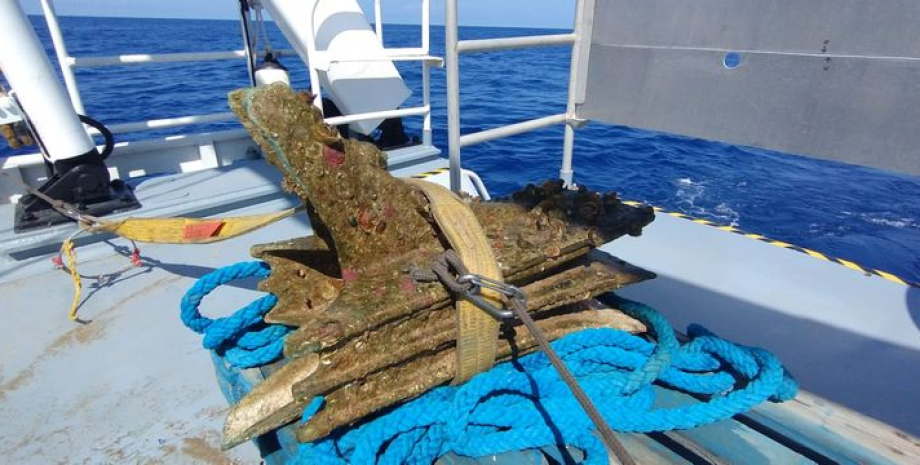
 By Victor Duda
By Victor Duda
Recently, after two decades of exploration, researchers discovered a bronze ram, which was believed to be used by the Roman fleet to destroy enemy ships, IFLSCIENCE writes. In focus, technology appeared its Telegram channel.
Subscribe to not miss the latest and most intrusive news from the world of science! The Sicilian Maritime Administration announced the find, reporting that the relics were found at a depth of about 80 meters between the islands of Lewanzo and Favignyan, off the west coast of Sicily. The identification of this ancient maritime weapon was facilitated by advanced technologies on board the Hercules research vessel. Tarans, like this, were a formidable tool of war.
They were installed on the nose of warships, they allowed to ram and sink enemy vessels. Over the past twenty years, 27 similar ramps, as well as 30 Roman helmets and two swords, have been identified in the same area. Archaeologists are currently exploring ancient weapons, on the front of which there is decorative relief. However, a thick layer of marine organisms covering a bronze artifact still prevents the detection of any inscriptions.
The battle near the Aegean Gate ended the first Punic War-a series of conflicts between Rome and Carthage in 264-146 BC. Carthage has been a dominant state in the Western Mediterranean for a long time, but the increasing influence of Rome in the region has led to tension on Sicily's island, which caused this clash. The victory of Rome in the battle near the Aegean Gate was a serious failure for Carthage, which did not restore its former power and was destroyed after the Third Punic War.
This victory was a turning point, allowing Rome to establish itself as a leading state in the Mediterranean, paving the way for its future expansion. Francesco Paolo Scarpinato, a regional advisor to cultural heritage, emphasized the importance of studying the seabed of the Aegean Gate, noting that it continues to provide valuable information about the naval battle that enshrined Roman dominance in the Mediterranean. Earlier, Focus talked about ancient burials of ancient Mongol tribes.










All rights reserved IN-Ukraine.info - 2022